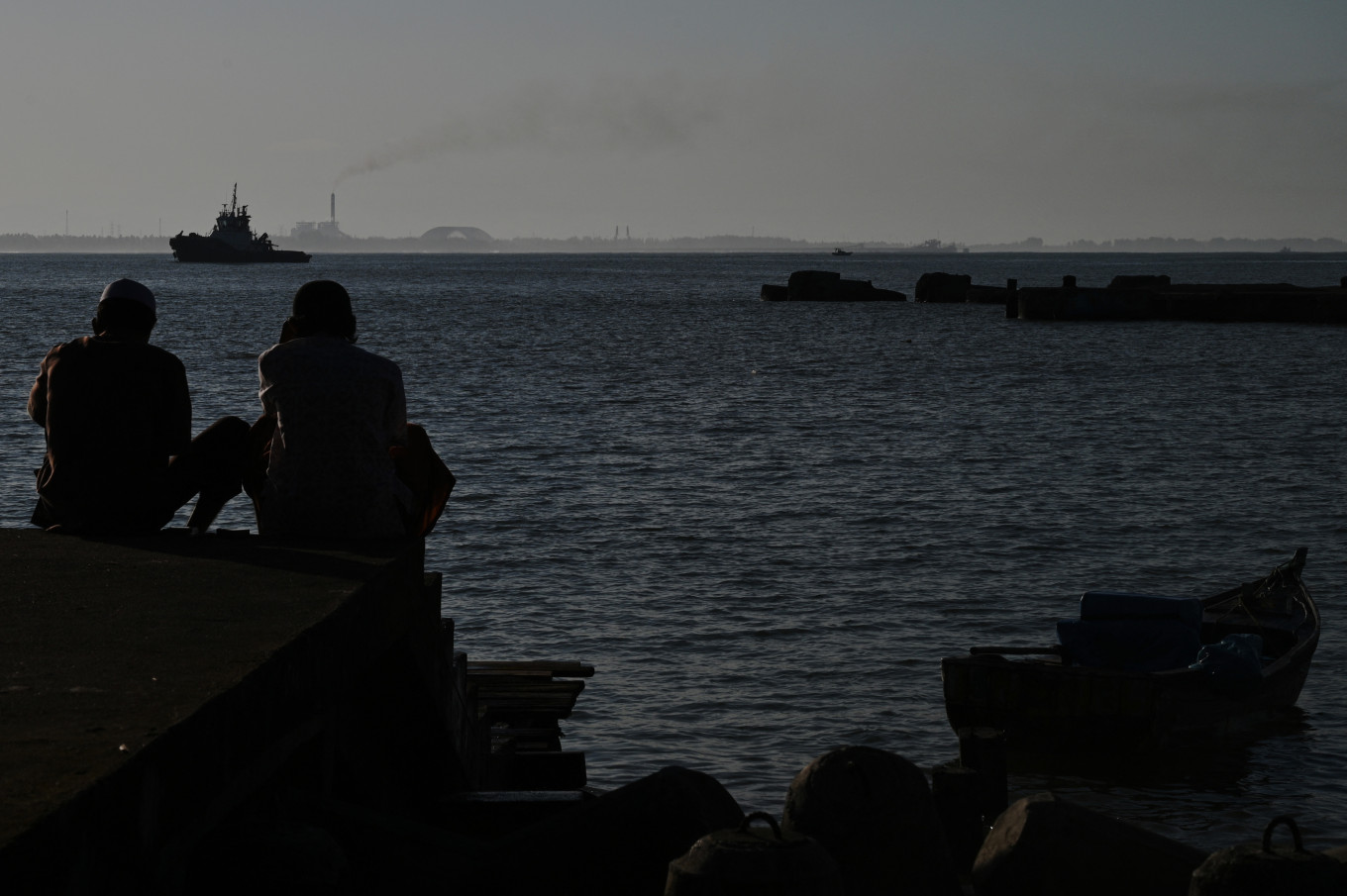Popular Reads
Top Results
Can't find what you're looking for?
View all search resultsPopular Reads
Top Results
Can't find what you're looking for?
View all search resultsCoal exit will have to wait
A phase-out of coal power through early plant retirement or project cancellation is not going to happen without global financial support.
Change text size
Gift Premium Articles
to Anyone
W
hen Indonesia’s Just Energy Transition Partnership (JETP) Secretariat officially released its delayed Comprehensive Investment and Policy Plan (CIPP) last Tuesday, nobody was surprised by the shortcomings written into the 300-plus-page document.
That is because statements made before the presentation had dashed expectations for the CIPP to present a coal power exit route, with an Energy and Mineral Resources Ministry official stating earlier this month that the plan was “to focus more on [other] emissions-reduction efforts rather than [shutting down] coal-fired power plants”.
Coming a year after the JETP program was launched to great fanfare at the Group of 20 (G20) Summit in Bali, the CIPP outlines how the US$20 billion in promised global financial support under the JETP is to be spent to kick-start Indonesia’s energy transition.
Many hoped the JETP would serve as a catalyst for much greater funds needed to decarbonize energy supply in the world’s fourth-most-populous country.
However, its effectiveness in the grand scheme of things is in doubt, because the blueprint lacks ambition in the crucial area of coal power, which still supplies most of Indonesia’s electricity, and the CIPP only confirms that.
First, the CIPP foresees just 1.7 gigawatts of coal power capacity being retired early. That is only a small portion of nationwide on-grid capacity, which currently stands at 37.6 GW and is set to rise to 40.6 GW by the end of this decade.
Second, it fails to address captive power plants, which are mostly coal-fueled and supply electricity for specific industrial or commercial facilities. The CIPP only promises “a more detailed study and road map on decarbonizing Indonesia’s off-grid industries”.
The CIPP makes no secret of the difficulty of dealing with coal power plants that still have most of their commercial operational period ahead of them. After proposing strategies from repurposing to co-firing, the blueprint notes that “further asset-level analysis” is needed.
Finally, nobody is under illusions about the crux of Indonesia’s energy transition: A phase-out of coal power through early plant retirement or project cancellation is not going to happen without global financial support.
The JETP has failed to bring much hope in this regard, because its International Partners Group (IPG), led by the United States and Japan, appears unwilling to fund projects that are economically unfeasible.
Sponsored by both governments and the private sector, the JETP includes support in the form of loans, equity investment, grants and guarantees. Grants are the obvious option for the coal phase-out, because it is hard to make a business case for either switching off a power plant ahead of schedule or for canceling a plant that is still in the pipeline for construction.
However, grants make up just a tiny portion of the JETP pledges. Simply put, rather than sink money into Indonesia’s coal exit, the JETP sponsors prefer to invest in the country’s renewable energy projects.
Do we need the JETP for that? A study published just days ago by international consultants EY finds that the “availability of finance for renewables is not identified as a main barrier [to clean energy financing] in most countries [in Asia]." They even underlined the word “not”.
To anyone following the news lately it is clear that the money is there to develop renewables in Indonesia. The problem is that to create a market for clean power, coal must go. That is the part we need help with.
Despite the lack of an exit strategy for coal, the government hopes to achieve net-zero carbon dioxide emissions from the power sector by 2050 and to cap nationwide emissions from its on-grid power sector at 250 million tonnes by 2030.
However, our delegation may face tough questions about how to achieve that when it attends the COP28 climate change conference in Dubai this week.
Tough questions should also be addressed to the IPG countries about the structure of the financial support they have pledged because the “just” part in the JETP means the burden has to be shared.











